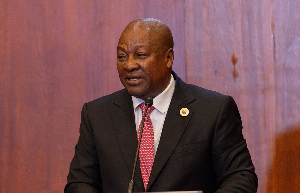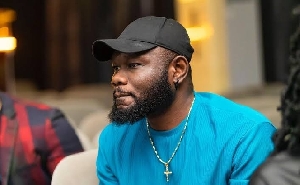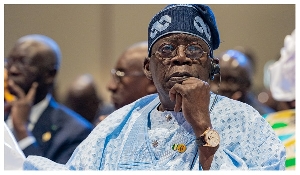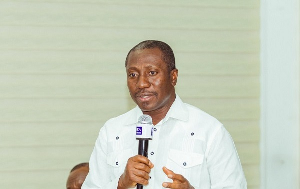Autism Spectrum Disorders(ASD) is a complex neurodevelopmental disorder that affects the way a person views and interacts with the world around him or her.
Persons with autism have difficulties in the areas of social interaction, communication and imagination.
They have trouble understanding what other people think and feel. This makes it very hard for them to express themselves either with words or through gestures, facial expressions, and touch.
Many people are not seeking the necessary help that they need instead, they are hiding these children at home, locking them up in their rooms, and denying them their basic human rights.
The family unit is so important in the Ghanaian society, yet members remain the biggest perpetrators of this ostracism, second to the “church”.
Some churches just want to exorcise the ASD “demon” away.
Sadly, even among the well-known disability groups in Ghana consider autism as a lesser disability, Serwaa Quaynor, Mother of a 27-year-old autistic child said.
The interventions in communication for autism include in many cases picture exchange communication and sign language for those who are non-verbal and also to help those who cannot verbally express themselves properly.
However, many people parenting an autistic child may not know about this.
Autism affects the entire being and total functioning of the individual unlike the physical disabilities, which affect only a particular part of the individual.
Though some persons with autism may have intellectual disability others have normal or higher than normal IQs, but because they are not properly understood, their intellect, skills and talents are left undeveloped.
Autism could also affect a person’s senses; sight, sound, smell, touch and taste.
Many children in mainstream schools who have autism but could somewhat express themselves suffer discrimination, teasing from peers and teachers and many do not even have desks and books as teachers claim they don’t sit in the class let alone participate in activities.
Many persons with autism have islets of abilities. These are capacities in which they show outstanding dexterity such as art, music, mathematics, science, good memory for information, excellent knowledge of a specific subject matter and continuous research.
Mrs. Serwaa Quaynor, who is also Chief Executive Officer of the Autism Awareness Care and Training Centre (AACT) told Ghana News Agency that she sojourned through the phases of denial through to acceptance of a son’s autism.
She said finally she was able not only to smile at the progress he has made but being able to reach out to others; to encourage them too to be accepting and seek help, and to reach out to the society at large is a nucleus of the story of AACT and Autism in Ghana.
“My son, Nortey was diagnosed with autism, when he was two years, 29 years ago in the United States of America (USA).
There was very little help at that time, even in the USA. I, therefore, had to become a stay at home mother since there were no early intervention programmes.
“At four my son was admitted to preschool and I volunteered in his school where I got a better understanding of autism”.
“When I returned to Ghana some 15 years ago, searching for autism services for my son proved rather difficult.
“Nortey was 16 years old with raging hormones, many challenging behaviours, ranging from self-injurious behaviours, aggression, insomnia, to mention a few.
Sleeping at night was a luxury I was lucky if I got two hours. What was I to do in a country where there were no services for children with autism? I felt like an outcast, dejected, alone, and petrified!”
“I found some solace in church and felt compelled to tell whoever would listen to me talk about my son and autism.
I thus began autism awareness in Ghana.
“Mind you not all pastors were welcoming, but I kept at it, asking for prayers and giving testimonies of how far God has brought my son and me.
“My sister was also spreading the word about autism and within a week she noticed a girl in her church that seemed to have autism,” she said.
Mrs. Quaynor said the mom of the girl denied that her daughter was suffering from autism. “Thankfully I met both mother and child and shared my story with her and amid tears, she said…she felt very isolated and confused because of her child’s autism”.
She said: “The stigma one faces with autism in Ghana is horrifying.
By word of mouth I continued to talk to different people about autism and within months I got to know of a few families affected by the disorder.
Thus beginning the autism families support group!
“Through the awareness campaigns, a few other families joined the support group. Autism did exist in Ghana and I was finding it!
“I was fortunate to meet Mr Mawusi, a special education teacher and a speech therapist. I hired him to help Nortey at home and the parents in the support group also expressed interest in the training Nortey was getting.”
Mrs. Quaynor said the Autism Awareness Care and Training (AACT) centre were birthed in 1998 in a small room at the back of her house.
She said 15 years on; AACT is working from a house in Kokomlemle in Accra and currently, operate with close to 40 children, ranging from pre-schoolers to young adults.
AACT encourages inclusion into mainstream education and society. The centre is assisting close to 400 children and their families.
The centre focuses on behaviour management, which is the core of the entire training programme, functional academics, music and art therapy, speech and occupational therapy and life skills training.
“Resources to train these children simply aren’t available for us here in Ghana. However, we are fortunate to receive speech/language and occupational therapy resources from international volunteers.
“We use local materials like the dry seed of the flamboyant tree as music shakers, Djembes drums for drumming to teach music and dance.
“Our staff work with the children on rhythms, knowing that many of autistic children thrive on this activity.
“Since church is a vital part of Ghanaian lifestyle we spend Friday mornings in a modified worship service.
Our staff members sing praise and worship songs with the children in English and the local language and teach the children about God through song and dance.”
Mrs Quaynor said the greatest achievement of AACT “have been with children who have made their way to mainstream schools through our early intervention programmes.
Other remarkable achievements have been in the improved behaviours of children, which have led to easier instruction and tremendous improvements in their ability learn”.
AACT has won awards for its service to many who are affected with autism and they sell products like Shea butter, Black Soap, AACT tye & dye fabric, AACT t-shirts and Polo shirts, brooches from AACT fabrics and jewellery such as paper beads necklaces, bracelets, earrings, cloth bangles, beaded watches, and autism wristbands.
Ghana joined the rest of the world to mark World Autism Day on April 2.
Health News of Tuesday, 5 April 2016
Source: GNA | Celestina Seyram Tsievor












